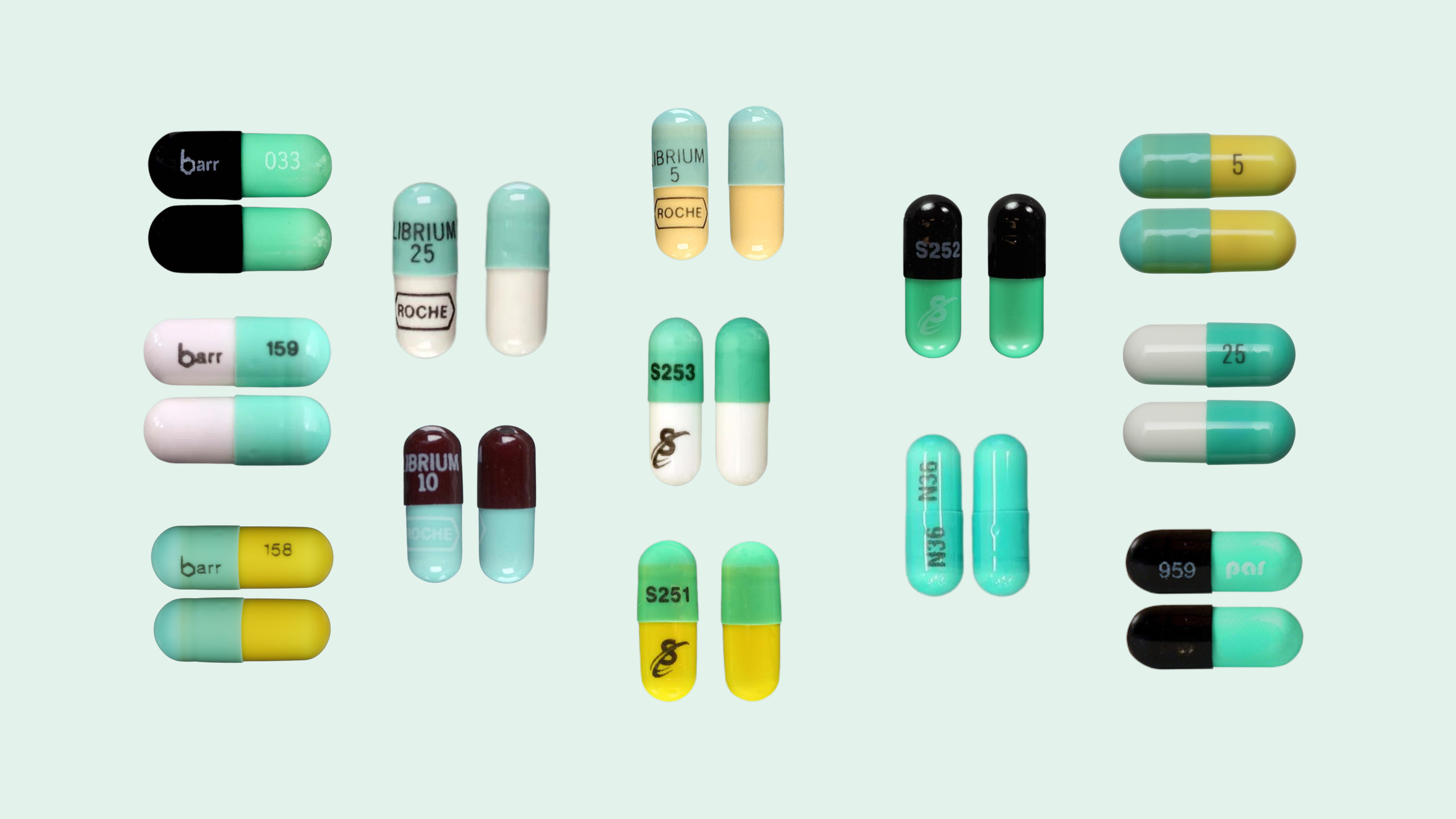Librium Withdrawal and Side Effects
Withdrawal from Librium can produce symptoms that vary in duration and intensity. There are many factors to consider when starting a treatment plan including the duration of use, dosage of Librium, a person’s overall health, the use of other substances and if there are any co-occurring mental health conditions.
Some common withdrawal symptoms include:
· Anxiety
· Insomnia
· Panic attacks
· Irritability
· Muscle pain and stiffness
· Abdominal cramps
· Poor concentration
· Memory problems
· Increased heart rate & blood pressure
· Shaking and tremors
· Sweating
· Seizures (in severe cases)
Benzodiazepines such as Librium should not be stopped abruptly as doing so could lead to dangerous side effects. Stopping gradually, under medical supervision, can be managed through a treatment plan.
Librium Withdrawal Timeline
Withdrawal from Librium can be affected by several factors, including the dosage of the medication, how long it has been used, the person’s physical health and whether the drug has been used along with other substances. Here is a general timeline for Librium withdrawal:
· Early withdrawal symptoms: Symptoms can begin about 1-3 days after the last dose and include insomnia, anxiety, restlessness, elevated blood pressure and increased heart rate.
· Acute withdrawal symptoms: This peak phase of symptoms, which begins about 1-2 weeks after the last dose, can be uncomfortable and intense. Symptoms include mood swings, tremors, nausea, severe anxiety, irritability, sweating, muscle pain and stiffness and, in severe cases, seizures.
· Late withdrawal: This stage can last several weeks to months. While the acute symptoms decrease, some people can experience prolonged withdrawal symptoms, known as Post-Acute Withdrawal Syndrome (PAWS). These include ongoing anxiety, chronic insomnia, depression, cognitive difficulties and emotional instability.
Librium Detox Treatment
Detoxification is a medically supervised process that is the first step in stopping dependence on Librium. A comprehensive individual assessment can help determine the patient’s physical health and other factors affecting detox. Safely managing withdrawal is necessary due to the risk of severe reactions and is the foundation of the road to recovery.
To help minimize symptoms, the dosage of Librium is tapered – gradually decreased over a period of time. This helps prevent severe reactions such as seizures and psychosis. The duration of tapering depends on the individual circumstances such as any health issues, the duration of Librium use and the dosage.
Medical supervision is crucial in managing detox and may include administering other medications to manage withdrawal symptoms. Nutritional support and hydration are provided as well as an environment that is meant to provide a comfortable space.
During detox, therapy and counseling can also begin. It helps to address the psychological aspects of addiction and make plans for ongoing support and relapse prevention strategies.
What Happens Next?
Once detox is complete, it is recommended to continue treatment through inpatient or outpatient programs. Addressing the other aspects of addiction – behavioral, social and psychological – will help create a plan for long-term recovery.
Attending therapy and group meetings are effective ways to continue treatment, allowing you to be surrounded by support while tackling the tough questions and looking forward to continued well-being. Therapy will also help develop skills to prevent relapse. Learning and practicing coping strategies can help patients manage stress, peer pressure and the triggers and cravings that once held a big space in their lives.
Good nutrition and exercise are also important in the recovery process. Eating right, getting enough sleep and staying hydrated have a positive effect on your energy and mood. Finding new hobbies and interests can also help with mood and choosing a new life path.
Continuing to check in with an addiction counselor is a great way to get advice when you need it or ask questions about your recovery.
Remember, recovery does not stop when treatment ends. Your new way of thinking and living will be worth it!
This website offers educational information and self-help tools for your personal use. However, everyone’s health needs are unique. To make the best and safest decisions for yourself, please consult with a doctor or licensed professional.

